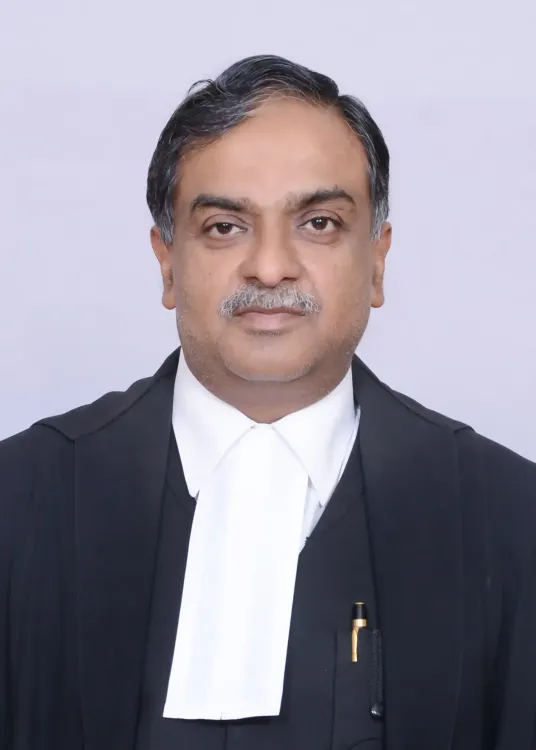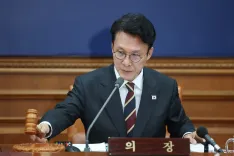Is Justice Vikram Nath the New Executive Chairman of NALSA?

Synopsis
Key Takeaways
- Justice Vikram Nath appointed as Executive Chairman of NALSA.
- NALSA ensures access to justice for marginalized and underprivileged individuals.
- Appointment follows Justice Surya Kant's elevation to Chief Justice of India.
- Justice system aims for equality and free legal aid per Article 39A.
- Leadership transition is significant for legal services in India.
New Delhi, Nov 24 (NationPress) Following Justice Surya Kant's assumption of the role of the 53rd Chief Justice of India (CJI), the Central Government has officially announced the appointment of Supreme Court Justice Vikram Nath as the new Executive Chairman of the National Legal Services Authority (NALSA). The Union Ministry of Law and Justice issued a notification stating, "In exercise of the powers conferred under Clause (b) of sub-section (2) of Section 3 of the Legal Services Authorities Act, 1987, the President is pleased to nominate Hon’ble Mr. Justice Vikram Nath, Judge, Supreme Court of India, as Executive Chairman, National Legal Services Authority, with effect from 24.11.2025."
Justice Vikram Nath has succeeded Justice Surya Kant as the head of NALSA.
Justice Kant vacated the position on Monday after being sworn in as CJI by President Droupadi Murmu, having taken on this significant role on May 14, 2025.
Justice Kant has commenced his 14-month term in the highest judicial role of the nation, following Justice Bhushan R. Gavai, who stepped down as CJI on reaching the age of 65.
Maintaining the established tradition, then CJI Gavai recommended Justice Kant, the most senior judge of the Supreme Court, as his successor.
NALSA, formed under the Legal Services Authorities Act, 1987, plays a crucial role in delivering justice to marginalized and disadvantaged individuals.
Its mission is derived from Article 39A of the Constitution, which serves as a Directive Principle of State Policy, mandating the government to ensure the legal system facilitates justice based on equal opportunity and to provide free legal aid, so that no citizen is denied justice due to financial or other disabilities.
Article 39A states that "the State shall secure that the operation of the legal system promotes justice, on a basis of equal opportunity, and shall, in particular, provide free legal aid, by suitable legislation or schemes or in any other way, to ensure that opportunities for securing justice are not denied to any citizen by reason of economic or other disabilities."









